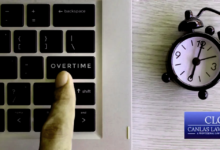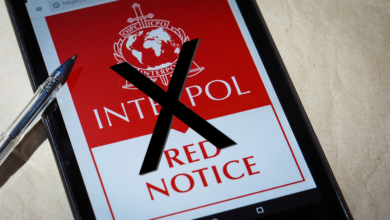Data Privacy Certification for Attorneys

Data Privacy Certification, More than anyone else, lawyers are aware that education is a lifelong endeavor that extends far beyond the confines of a legal textbook. Additionally, data literacy—and, regrettably, data security—are crucial skills for lawyers in the rapidly evolving digital world.
Although all lawyers should be mindful of the dangers posed by our new digital environment, these new difficulties also present opportunities for lawyers who are particularly adept with data. Pursuing data privacy certification is a terrific method to put your knowledge to the test and show off your competence to coworkers and clients if you’ve worked hard to develop your data privacy knowledge or practice in the area of privacy legislation.
Read More: What Happens When My Lawyer Sends a Demand Letter?
Data Privacy Certification, The International Association of Privacy Professionals (IAPP)
The International Association of Privacy Professionals (IAPP), the biggest, most complete global information privacy organization, is the ideal place to obtain certification. Their credentials are regarded as the “gold standard” for confirming professionals’ privacy knowledge.
We’ll talk about the value of data privacy in this piece. Along with some of the data privacy certifications for attorneys that the IAPP offers, and information on how you may begin the process of certification right away.
A U.S. general practice lawyer, for instance, will gain from CIPP/US certification since it indicates thorough familiarity with workplace privacy, state privacy laws, and restrictions on the collecting and use of data in the private sector—all of which might frequently come up in cases.
On the other hand, a U.S. corporate lawyer whose company represents clients in Europe might be looking to demonstrate expertise in GDPR and would be better off obtaining a CIPP/E certificate. This certification covers national and pan-European data protection regulations, important privacy terminology, and useful ideas about the security of personal information and cross-border data transfers.
Data Privacy Certification, Growing need for data privacy
Data grows as technology develops, increasing the risk of data breaches.
Many of us have seen firsthand the devastation that data breaches can cause, like in the case of the 2021 Facebook data breach that exposed the personal data of over 500 million users. Worldwide calls for enhanced protection have intensified as people are more aware of the potential of data breaches. For instance, the General Data Protection Regulation was adopted by the European Union in 2016 and is a privacy regulation that businesses collecting data on EU citizens must abide by.
What does this have to do with lawyers being certified in data privacy? Law companies continue to experience data breaches at an alarming pace, despite greater awareness of the problem. In the American Bar Association’s 2021 Cybersecurity Report, 25% of reporting companies stated that they have at some point experienced a data breach. Statistics like these raise the question of what else lawyers might do to safeguard their personal information.
Why certification is necessary for lawyers
Data Privacy Certification, Increasing the security of your law practice begins with knowledge or awareness. If you don’t know what to watch out for or what compliance requirements you need to follow, how can you possibly hope to protect yourself?
Privacy certifications play a role in this. Lawyers can learn the ins and outs of data privacy and the procedures they must take to secure their law practice by pursuing data certification. An additional advantage of this approach is a certification that might help you stand out from the crowd.
Benefits of lawyers obtaining data privacy certification
Legal professionals may benefit greatly from obtaining data privacy certification. Continue reading to discover the benefits of obtaining a data privacy certification.
Data Privacy Certification, Turn into a Privacy Law SpecialistTM
By earning your certification as an American Bar Association Privacy Law SpecialistTM, you may wow both your clients and peers. The IAPP is able to certify lawyers who have complied with “strict experience and knowledge requirements” as privacy law specialists through this coveted distinction, which is accessible in some states. Earning this title validates your reputation as a competent expert. Data privacy is one of the legal sector’s fastest-growing areas, therefore it’s a wonderful chance to position oneself as a lawyer who keeps up with legal developments. Additionally, you’ll be able to differentiate yourself from the competition by telling clients about your area of expertise.
Visit the IAPP’s interactive Privacy Law SpecialistTM map to find out if you are eligible to apply for the ABA Privacy Law SpecialistTM title.
Boost revenue
Some clients prefer to collaborate with law firms that have a track record of putting data protection first. Others require legal services from firms with experience in data privacy certification or privacy law in order to receive suitable support for their needs. Data privacy certification helps law firms increase their revenue streams in addition to differentiating them from the competition. You can attract a larger clientele for your legal practice and boost your earnings by obtaining data certification.
Data Privacy Certification, Continually update
Any modern legal practice must have a basic awareness of privacy and data protection rules. As privacy laws change, diversifying your knowledge and skills in these areas can help your law business prosper. It will also show that you are dedicated to meeting your clients’ demands in the increasingly digital world. You may deliver a better client-centered experience by keeping your clients’ requirements at the forefront of your mind.
How to become certified in data privacy
In addition to the Privacy Law SpecialistTM certification, IAPP also provides the following other privacy certifications:
- For privacy laws and regulations, consider a Certified Information Privacy Professional (CIPP).
- Operations managers should become Certified Information Privacy Managers (CIPM).
- IT professionals can become Certified Information Privacy Technologists (CIPT).
There are various goals for each certification. But any of them can be worthwhile depending on the size of your law firm. Getting CIPP certified is probably your best bet if you’re a lawyer. This program focuses on privacy frameworks, rules, and regulations. Additionally, it confirms that you have proven that you meet the strict experience and knowledge criteria under privacy law.
Lawyer CIPP certification
Data Privacy Certification, You can choose one of four CIPP concentrations if you decide to pursue CIPP certification. which are all concentrated on a particular area:
- Europe (CIPP/E)
- (CIPP/C) Canada
- European Union
- Independent study is how U.S.
Private sector (CIPP/US) applicants get ready for their CIPP exam. After that, you can buy a Certification Exam when you’re ready. You have one year from the time you purchase your exam to arrange and take it. If you pass your exam, you’ll have to pay a maintenance fee for your certification. Two years’ worth of coverage will be given by this. Furthermore, you will receive your CIPP certification!
Making the transition to ABA Privacy Law Specialist
You can use your CIPP certification to become an ABA Privacy Law Specialist if you truly want to shine. You must have your CIPP certification in addition to a CIPM or CIPT certification before applying for this certification.
The following qualifications in order to apply, in addition to at least two IAPP certifications:
- An active participant in at least one American state bar.
- During the three years prior to the application, at least 36 hours of privacy law-related continuing legal education.
- A personal statement and at least five peer testimonials attesting to your knowledge of privacy legislation.
- IAPP-administered Privacy Law Specialist Ethics Exam success or a recent Multistate Professional Responsibility Exam score of 80 or higher.
- Practiced privacy law with “ongoing and considerable” experience, which is defined as at least 25% of your full-time practice over a three-year period.
- The benefits of earning an ABA Privacy Law Specialist credential outweigh the stringent requirements. In the long term, your efforts will surely be worthwhile.
Final thoughts on lawyers obtaining data privacy certification
Data Privacy Certification, The significance of comprehending data security issues ought to be obvious to lawyers by this point. Consider data privacy certification for lawyers, though, if you want to advance your study. You can develop a thorough awareness of data privacy issues by choosing from a number of the certification alternatives. Along with aiding in the diversification of your practice, showcasing your abilities in a cutthroat industry, and gaining clients.












4 Comments